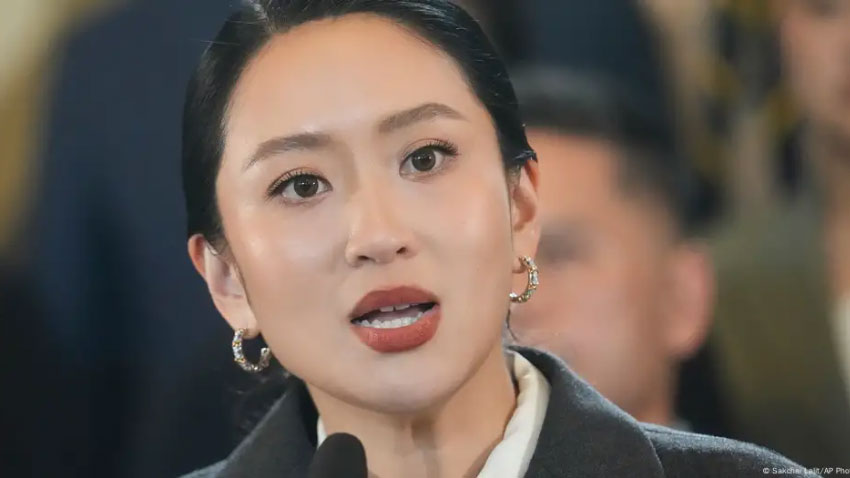Online Desk
Thailand’s Constitutional Court on Friday removed Paetongtarn Shinawatra, who had already been suspended, from office as prime minister.
In its verdict, the court ruled that although Paetongtarn did not show “dishonesty” and had demonstrated the “required integrity,” she violated ethics rules in a leaked phone call with Cambodian Senate President Hun Sen.
During the phone call, the pair had discussed a border dispute that escalated into deadly clashes.
“Her actions have led to a loss of trust, prioritizing personal interest over national interest, which fueled public suspicion that she was siding with Cambodia and diminished confidence in her as PM among Thai citizens,” one of the judges said during the reading of the verdict.
“The defendant has not upheld the ethical code of conduct. Her tenure as prime minister effectively ended with the suspension on July 1.”
The ruling could trigger political turmoil in the country that is only weeks into a ceasefire with its neighbor to the south.
What was the case against Paetongtarn?
Paetongtarn, the 39-year-old daughter of the controversial billionaire and former prime minister Thaksin Shinawatra, was suspended from office in July after a petition from 36 senators who accused her of poor ethical standards, dishonesty and failure to stand up for the nation.
At the center of the case is a leaked phone call with Hun Sen, Cambodia’s former ruler and father of the current leader, Hun Manet.
In that call, Paetongtarn reportedly addressed Hun as “uncle” while calling a Thai military commander her “opponent.”
They discussed the brewing tensions at their shared border over a disputed patch of land.
The leak sparked fury across Thailand, where the military holds significant power and sway.
Some lawmakers accused Paetongtarn of undermining her country’s military. Her main coalition partner, Bhumjaithai, walked out in protest, leaving the government hanging by a thread.
In a hearing at the court last week, Paetongtarn said she had done her best to act in Thailand’s interest.
Tensions between Thailand and Cambodia boiled over in July, leading to the deadliest military clashes in decades.
Over 40 people were killed and around 300,000 people were displaced from their homes along the border.
What did Paetongarn say after the verdict?
Paetongtarn has delivered a brief statement to reporters following the court’s ruling.
The now former prime minister said she “accepts the court’s verdict,” although she warned that it “will bring abrupt political change.”
But she denied the suggestion that she had prioritized her personal interests. “My intentions were for the benefit of the country not for personal gain, but for the lives of the people, including civilians and soldiers,” she said.
“The verdict today caused a change in Thai politics, we all have to help, all sides, whether government or opposition, or the people, all of us have to work together to build political stability and to ensure that there won’t be another turning point again,” Paetongtarn said.
Nattaphong Ruangpanyawut, the leader of Thailand’s opposition People’s Party — the successor to the banned progressive Future Forward and Move Forward parties — has called for parliament to be dissolved within four months.
Thailand’s battered history of prime ministers
Paetongtarn has become the fifth prime minister in 17 years to be removed from office by Thailand’s Constitutional Court.
Of the six leaders tried in the court, only Paetongtarn’s father survived a trial.
Paetongtarn is the second prime minister from the Pheu Thai party to be dismissed since August last year.
Her predecessor, Srettha Thavisin, was removed by the Constitutional Court after less than a year in power on charges of ethics violations.
Who are Thailand’s Shinawatra family?
Thaksin, a divisive figure who returned to the country in 2023 after 15 years in exile, was widely seen as the driving force behind Paetongtarn’s government.
The tycoon was also considered to be the main influence in the government led by his sister, Yingluck, from 2011 to 2014, until she was ousted after a military coup.
The Shinawatras’ populist appeal has dominated Thai politics for the past two decades, although their popularity has waned in recent years with the emergence of the progressive Move Forward, which was disbanded in 2023 despite winning the most seats in an election that year.


